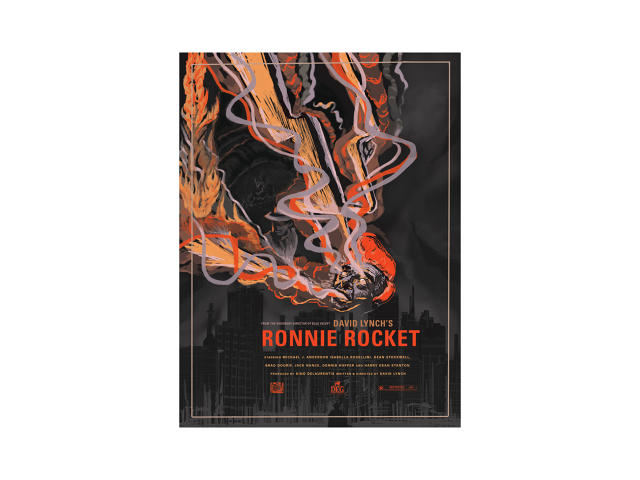Of the dozen or so unrealized projects film auteur Stanley Kubrick left behind at his death, none is as legendary as Napoleon—a historical opus about the French emperor that the director originally meant as his follow-up to 2001.
Starring Jack Nicholson as Napoleon and Audrey Hepburn as Josephine, Kubrick had already secured 50,000 real-life Romanian soldiers to help film the movie's extensive battle scenes when the financing unceremoniously dried up. Kubrick ultimately recycled much of his Napoleon research to make 1975's underrated Barry Lyndona reality, but what if he hadn't? What if Napoleon had actually been made, as well other famously unmade blockbusters?
Los Angeles-based artist Fernando Reza imagines just that with his series of alt-reality movie posters, The Ones That Got Away. The series includes some truly legendary unmade films—here are the stories behind them.
Kaleidoscope

Alfred Hitchcock's Kaleidoscope was an unmade prequel to Shadow of a Doubt, which Hitchcock considered the finest movie he'd ever made. The film would have followed a "handsome and charming" young bodybuilder inspired by the real-life convicted rapist and murderer Neville Heath, who would have been the film's protagonist. Universal ultimately turned the film down because of its relentless sex and violence, but many of the ideas in Kaleidoscope were ultimately used in Hitchcock's 1972, Frenzy, another under-appreciated masterpiece.
Ronnie Rocket

Ronnie Rocket, David Lynch's unrealized follow-up to Eraserhead, was to star Michael J. Anderson (who went on to be Twin Peaks' The Man from Another Place) as a teenage dwarf who becomes the titular rockstar. Another subplot was to involve a detective who is so good at standing on one leg that he is capable of traversing the second dimension. Ultimately, no one wanted to finance Ronnie Rocket, so Lynch ended up making The Elephant Man instead.
Giraffes on Horseback Salad

This lost Dada comedy film was written by Salvador Dali for the Marx Brothers in 1937. It was to include scenes showing giraffes wearing gas-masks, which had been set on fire, and Harpo running around as an aristocrat named Jimmy, using a butterfly net to capture the 18 smallest dwarfs in the world. The film was to be scored by legendary jazz musician Cole Porter. MGM ultimately passed on the film, saying it was too surreal, even for the Marx Brothers.
At the Mountains of Madness

At the Mountains of Madness was to be an adaptation of one of H.P. Lovecraft's weirdest pulp stories, in which unspeakable "Elder Things" are worshipped by a race of blind, six-foot-tall albino penguins in a lost Antarctic city. It was to be realized by monster-maker Guillermo del Toro of Hellboy and Pan's Labyrinth fame, until the film's similarity to Ridley Scott's Prometheus killed it off.
Other posters in the series include Orson Welles's Don Quixote and Heart of Darkness adaptations, as well as David Lean's adaptation of the Joseph Conrad book Nostromo and Stanley Kubrick's lost holocaust film, The Aryan Papers. And Reza tells me he hopes to add more over time, including Ray Harryhausen's stop-motion course on Darwinism, Evolution, and Tim Burton's infamous adaptation of Superman.
Ultimately, Reza says that he—and, by extension, us—are so fascinated by unmade Hollywood films because they can be anything we want them to be. "Just about every director has some passion project that a lot of times never comes to fruition," he tells me. "Because they don't exist, we're left to fill in the blanks. So that kind of makes them perfect films. We can project our imagination onto them."
All Images: Fernando Reza

















